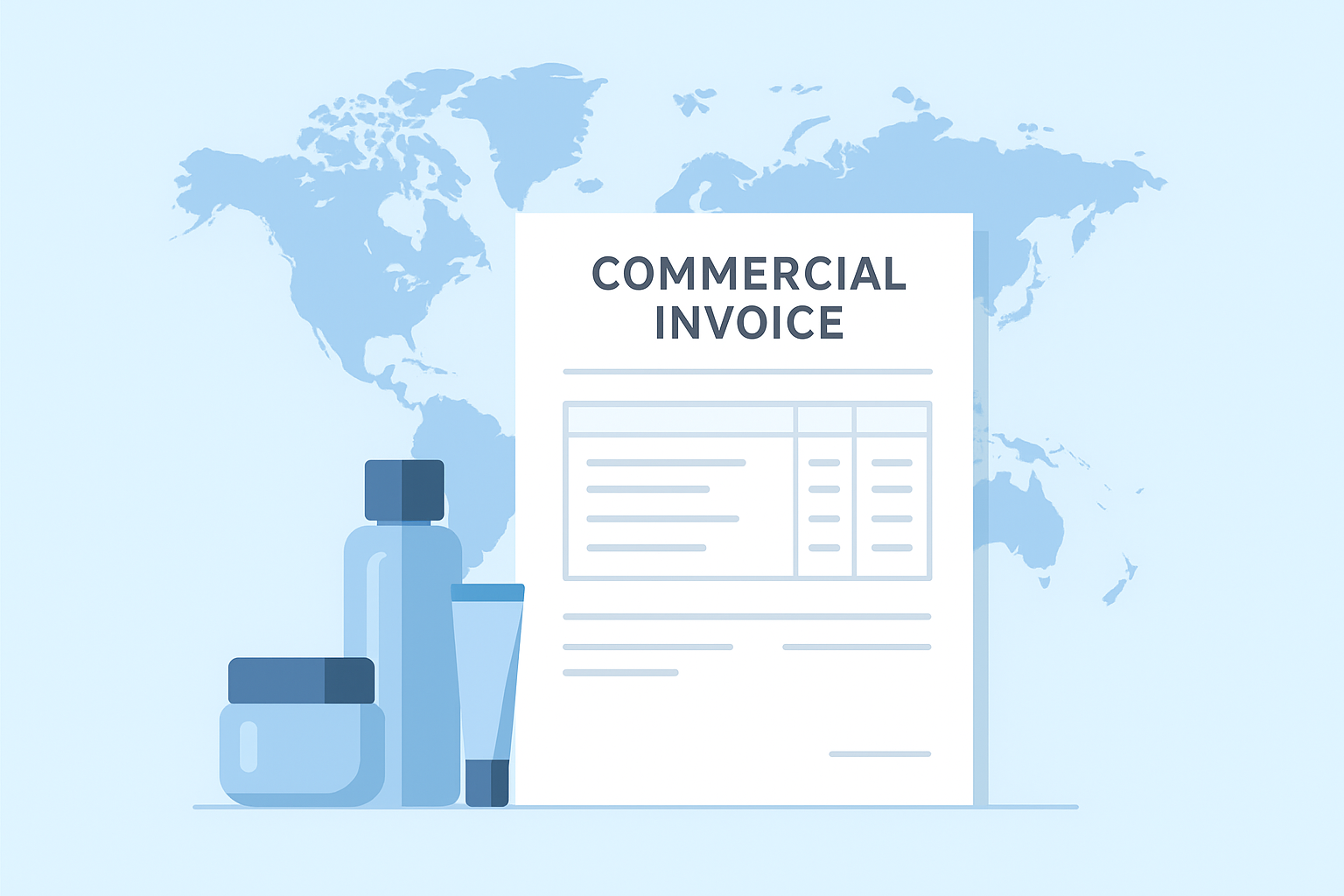
Commercial Invoice (C/I) – Essential for Cosmetic Export Compliance
When exporting cosmetics, a Commercial Invoice (C/I) is one of the most important documents required by customs authorities worldwide. It serves as proof of sale between exporter and importer and is used to calculate import duties, taxes, and fees. Unlike domestic invoices, a Commercial Invoice carries legal significance in international trade and must often be certified or legalized before goods can enter a foreign market.
What is a Commercial Invoice?
A Commercial Invoice is a detailed record of the transaction, outlining product descriptions, HS codes, country of origin, quantities, unit prices, and delivery terms. It may be processed individually or alongside a Certificate of Origin to support customs clearance. Once properly issued and legalized, it ensures products can be shipped to the port of entry without unnecessary delays.
Commercial Invoice Requirements
To meet international compliance, a Commercial Invoice must include the following details:
Incomplete or inaccurate information can result in customs rejection or shipment delays.
How to Fill Out a Commercial Invoice
Exporters should:
Provide legal names and addresses of both parties.
Describe goods clearly, including quantities and packaging.
Use correct HS codes and declare accurate values.
Ensure the country of origin matches the Certificate of Free Sale for Cosmetics.
Submit the invoice for legalization where required.
For shipments to the Middle East, exporters may also need additional processing, as outlined in ACMA Cosmetics Services for the UAE.
Commercial Invoice vs. Proforma Invoice
A Commercial Invoice is legally binding and used for customs clearance after a sale is completed. A Proforma Invoice is only a quotation, provided before a transaction is finalized.
Apostille or Legalization
Hague Convention Countries: Commercial Invoices may be authenticated by apostille, eliminating the need for embassy legalization. See Apostille for Export Documents – Trusted Services by ACMA.
Non-Hague Countries: Embassy or consular legalization is required, often following ACMA certification.
Why ACMA
As a globally recognized authority in cosmetic trade compliance, ACMA ensures Commercial Invoices and related documents such as GMP Certificates and Certificates of Origin are properly certified and accepted worldwide. Exporters benefit from reliable authentication, streamlined processing, and international recognition of ACMA-issued documents.

